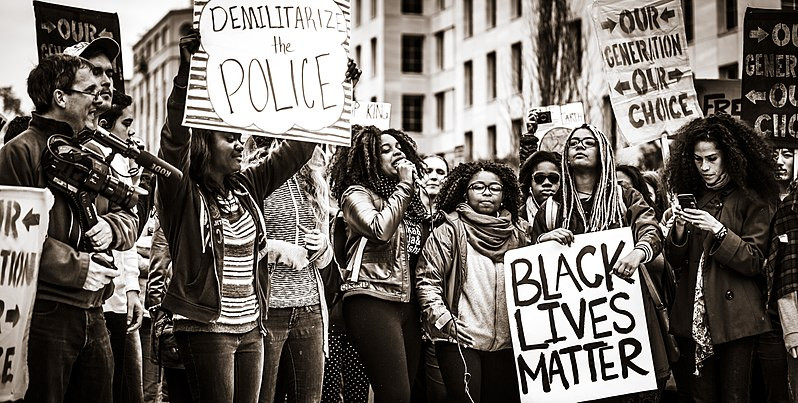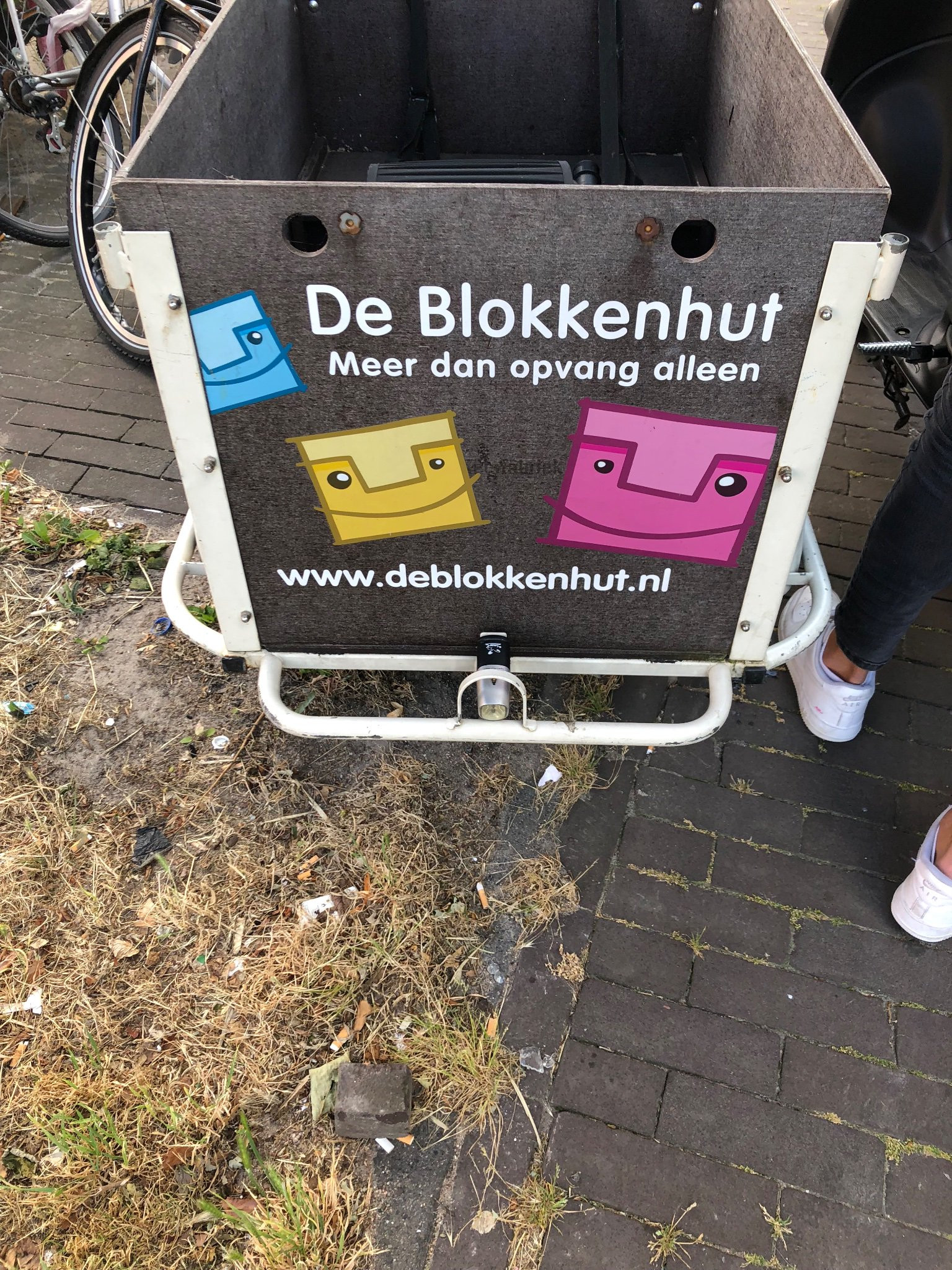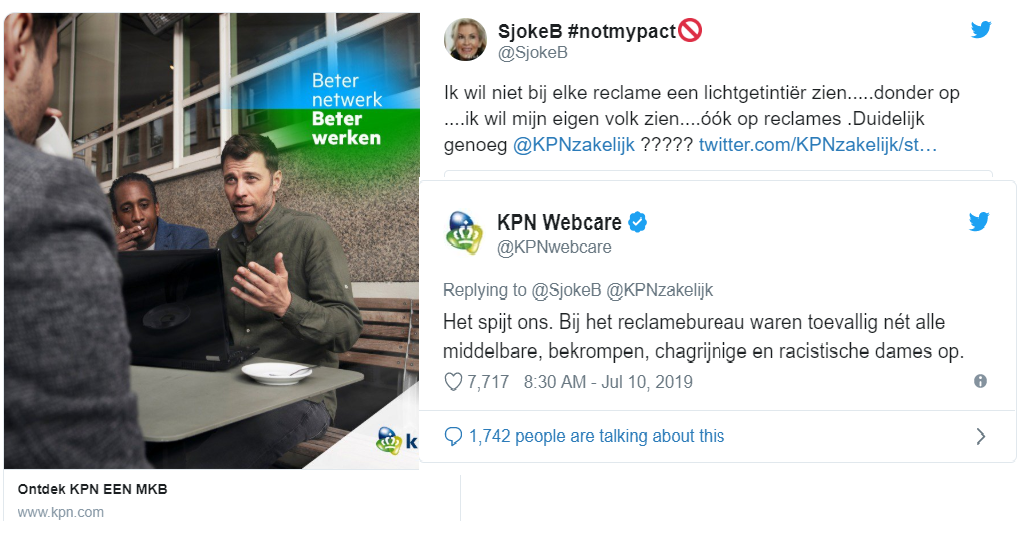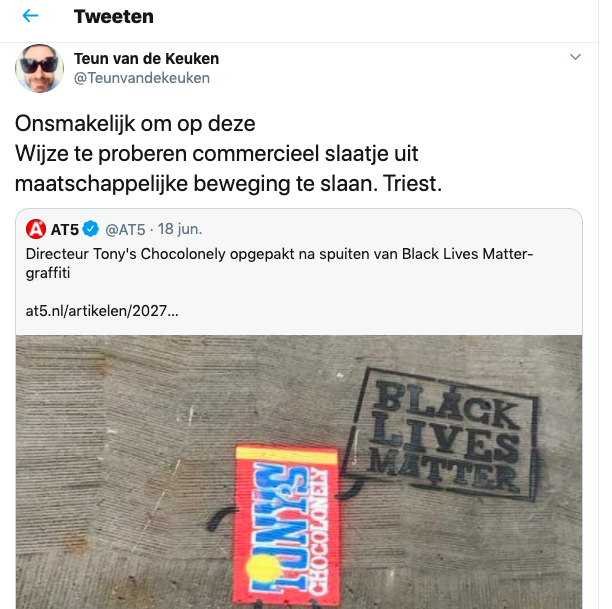An increasing number of consumers expect companies to engage in socially responsible entrepreneurship. Themes such as diversity and sustainability are becoming more urgent. Should brands make their voices heard in the Black Lives Matter discussion?
Brands want to engage
Dam Square was packed for a Black Lives Matter protest. Advertisers of the show Veronica Inside were asked to distance themselves from the racist statements made by Johan Derksen or to stop advertising around the soccer program altogether. The number of Dutch people in favor of the character Black Pete dropped from 80 to 40 percent. That people from different ethnic backgrounds have different opportunities is now truly on the agenda.
Many brands are trying to engage with these developments. They realize that they can appeal to their base and reach new customers by ‘latching on’ to social discussions. During a webinar on PR at Epicenter that I recently organized, the question arose whether brands should participate in this discussion. A good, urgent, and current question. Below, I attempt to answer that question.
More than a childcare center
There are a number of developments in the field of corporate communication that we need to consider. Following Simon Sinek's famous 'Why,' many companies sought their purpose: an answer to the question of why the company exists. So-called purpose marketing provided a solution, because it gives companies a distinguishing feature, even if their solution or product isn’t. But sometimes, purpose marketing is downright uncomfortable. Like a daycare claiming to be more than a childcare center.
Well, I hope it’s mainly an excellent childcare center.
After focusing on purpose marketing for a while, brands are now under intense scrutiny. From social justice warriors to right-wing grumps: fervent Tweeters scour the internet hoping to cause a scandal. This has led to a constant tension: should I as a brand speak up? How do I respond to this issue? And where's the line between decency and a good joke? You would want to respond like KPN does below, but that’s not appropriate for every brand or situation.
Marketing doesn't work without policy
Should every brand engage in the BLM discussion? Let's consider how two well-known brands, Tony's Chocolonely and Adidas, address this theme. Adidas has long been associated with African-American culture (think of the hip-hop classic: My Adidas by Run-DMC), but black employees at Adidas say they feel discriminated against. Adidas's shortcomings in this area are highlighted by a solid article in The New York Times. Marketing doesn’t work if the policy falls behind.
Tony's Chocolonely's CEO, Henk Jan Beltman, was recently arrested when he got involved in the BLM discussion. He spray-painted the slogan Black lives matter and an image of a Tony’s Chocolonely bar on a wall of the Beurs van Berlage. This is the location of a statue of Jan Pieterszoon Coen, a Governor-General of the VOC, who maintained a violent trade policy. Tony's ‘godfather/critic’ Teun van de Keuken responds to this marketing stunt and exposes why the action is an incredible marketing stunt: it is simply cashing in – even abusing this situation for commercial gain.

Nike and Happy Good Talk set a good example
Brands that embrace diversity and make it part of their DNA are more credible when they speak out in this discussion. Nike expressed its views on diversity before equal rights became mainstream (an odd phrase, but sadly true). By sponsoring the ostracized football player Kaepernick, Nike has long been recognizable as an advocate for the rights of people of color.
A Dutch brand that celebrates diversity is Happy Good Talk. The 'comfort zone enlarger' Marco Pesch states that when we think of a speaker, we often think of a white, middle-aged man. However, there are many more interesting perspectives. This brand has been voicing its position on diversity for a while, helping people from various backgrounds to shine on stage. As such, it is a credible party to engage in this discussion, with a sympathetic call to action in its newsletter. Note: this entrepreneur names his own blind spots and also acknowledges that he is still learning in this discussion. This makes it vulnerable, authentic, credible, and non-commercial.
Conclusion: walk the talk
It is only credible for a brand to speak out in the BLM discussion if it has a proven track record in the area of diversity. Nike spoke out in the BLM discussion before mass protests occurred. The services and vision of Happy Good Talk celebrate diversity. That's why it's credible for these brands to speak out. They act based on their principles or offer a solution related to diversity.
Not every brand needs to debate every topic. For example, garden centers have little to gain from posting a social media message or sending out a press release about diversity. What can they do? Engage with this discussion by reviewing their recruitment and personnel policy. Walk the talk. Contribute to a more inclusive society by implementing a more inclusive policy themselves. If practice teaches us anything, it is that good PR starts with a company that behaves socially consciously – and not just busy latching onto the latest social discussion. That’s needlessly forced and your target audience will immediately notice, think of an organization calling itself 'more than a childcare center.'




